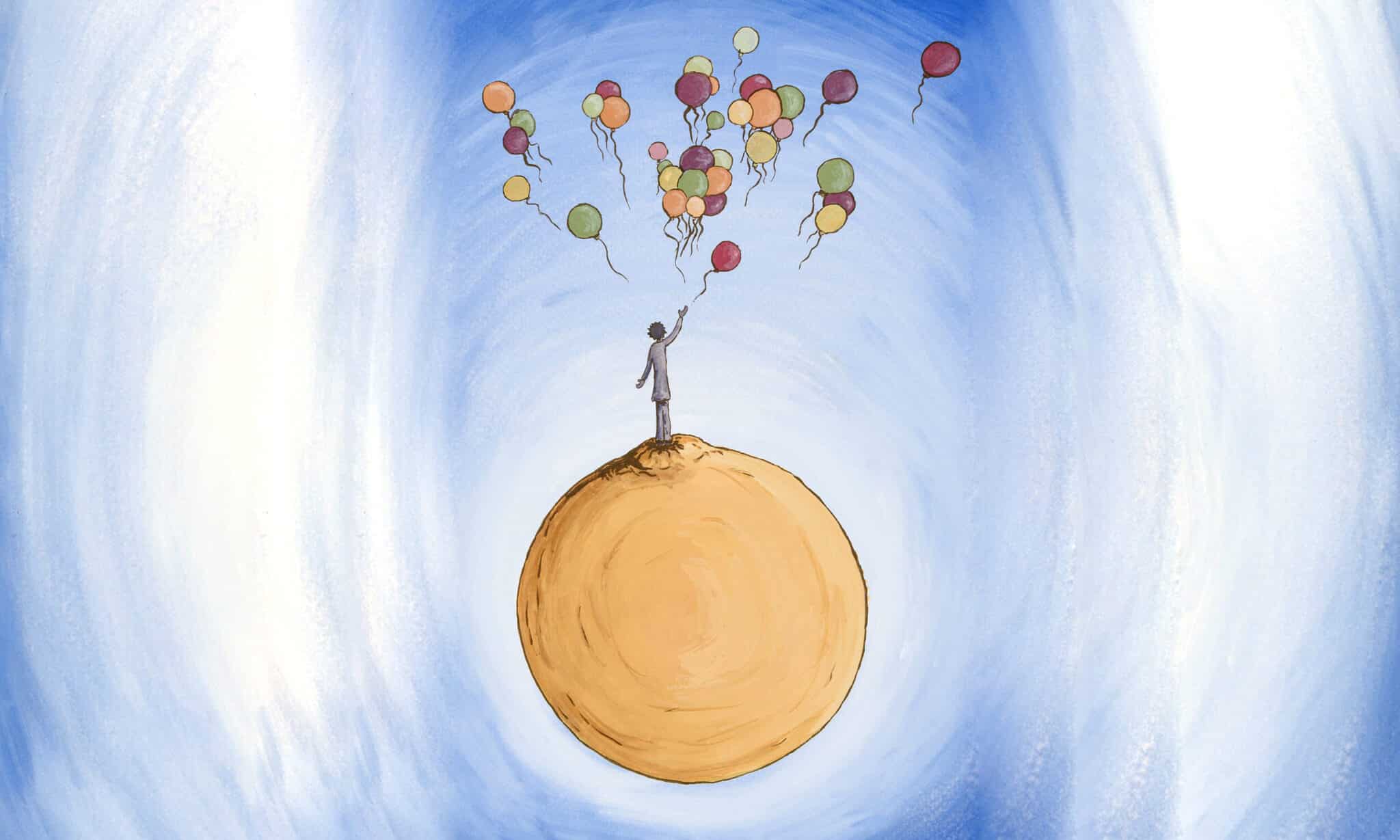Navigating the Process of Dying with Acceptance and Peace
The Importance of Compassionate Communication
Clear and compassionate communication is crucial during the dying process. For the dying person, open conversations about their wishes, fears, and desires can provide a sense of control and agency. This is where a funeral plan can be forged, and funeral directors can be engaged to facilitate this process. Picaluna Funerals is uniquely positioned to begin these delicate conversations with the dying, with End of Life Doulas, Consultants and Funeral Arrangers as well as Funeral Celebrants.
Loved ones should listen attentively, without judgment, and respect the person’s decisions regarding their care and end-of-life preferences. Whether discussing the more practical elements like burial versus cremation or broader funeral wishes, emotions may run high during this time, and conflicts can arise. Addressing these emotions openly and with empathy can help ease tension and strengthen the bonds between loved ones.
Creating Meaningful Moments
During the dying process, creating meaningful moments can be a source of comfort and connection for both the dying person and their loved ones. Meaningful moments may involve reminiscing about cherished memories, planning the vibe of the funeral, sharing stories, or engaging in activities that bring joy and comfort. Picaluna Funerals encourages loved ones to make space for rituals and enriching discussions with many of our funeral directors and end-of-life doulas welcoming the opportunity to facilitate.
Dying, the final stage of life is a natural and inevitable part of the human experience. However, facing the reality of our mortality can be a deeply challenging and emotional journey, both for the individuals approaching the end of life and for their loved ones.
Letting go during the dying process involves embracing acceptance and finding peace for those on this sacred journey. Acceptance is the cornerstone of letting go during the dying process. For the person who is dying, acceptance involves acknowledging the reality of their condition and embracing the inevitability of their mortality.
Letting go for those left behind can present many different challenges, with varying levels of grief. Heartache can be traumatic, and its effects can be profound, disruptive, and bewildering. One of the most confusing symptoms of grief is the loss of personal identity. Most people define themselves to some degree through their relationships (father, mother, husband, wife etc…), and the loss of the relational person, precipitates a profound loss of one’s sense of selfhood. The process of reconstructing oneself without the loved person is confounding. A major portion of a sense of loss are the disrupted memories of life’s narrative. Suddenly you’re the only person who remembers your history and your life.
In this blog, we will explore the art of letting go, for the dying and of the dying, offering insights and perspectives on how to navigate this delicate phase with grace and dignity. In the face of such profound changes and uncertainty, the art of letting go becomes essential.
Understanding the Dying Process and Providing Support
Before delving into the art of letting go, it is crucial to understand the dying process itself. Dying is a natural biological progression that occurs when an individual’s body can no longer sustain life. While the physical aspects of dying are relatively predictable, the emotional and spiritual dimensions vary from person to person. It is essential to approach each individual’s journey, with compassion, sensitivity and respect for their unique experience.
Embracing Acceptance
Acceptance does not mean passivity or resignation. It is about acknowledging the truth of a situation, no matter how difficult it may be, and choosing to respond with compassion and equanimity. Acceptance empowers us to take ownership of our emotions and responses, enabling us to navigate life’s challenges with greater resilience.
This may be a gradual process, and individuals may go through various stages of acceptance, including denial, anger, bargaining, depression and finally, acceptance.
Supporting the dying person in their journey towards acceptance requires patience, compassion, and active listening. Encouraging open and honest conversations about death, their feelings, and their fears can provide a safe space for the dying person to express themselves and find peace.
The Role of Palliative Care
Palliative care is a multidisciplinary approach to care that aims to enhance the quality of life for individuals with life-limiting illness; and their families. It focuses on managing pain, symptoms, and emotional distress, while also addressing the person’s psychological, social, and spiritual needs. The earlier discussions with Palliative Care take place, the better the quality of care.
The palliative care team plays a pivotal role working collaboratively with the person who is dying, and their loved ones. By providing comfort and emotional support, the palliative care team helps facilitate a more peaceful and dignified dying experience.
Fostering Spiritual Connection
Spirituality plays a significant role in the lives of many individuals, particularly during the dying process. While spirituality varies across different belief systems and cultures, it often involves finding meaning and purpose in life and connecting with something greater than oneself.
For the dying person, fostering spiritual connection can provide solace and comfort during this transitional phase. It may involve engaging in prayer, meditation, or other spiritual practices that resonate with their beliefs. Loved ones can also support the dying person’s spiritual journey by respecting their beliefs and providing opportunities for spiritual expression.
Releasing Mental Attachments
Our minds are constantly generating thoughts, beliefs and expectations that can shape our experiences. However, clinging to fixed ideas or rigid beliefs can create unnecessary suffering. The art of letting go involves cultivating a flexible and open mind, allowing us to adapt to life’s uncertainties with greater ease.
Practicing mindfulness and self-awareness can help us recognise mental attachments. By observing our thoughts and emotions without judgment, we gain clarity about the patterns that hold us back. With this awareness we can consciously choose to release mental attachments that no longer serve us, fostering a sense of inner freedom.
The Role of Gratitude
Gratitude is a powerful tool in the art of letting go. When we focus on the blessings and abundance in our lives, we shift our attention away from what we lack or what we are trying to hold onto. Cultivating a practice of gratitude allows us to appreciate the present and find contentment in what we have, rather than yearning for what we do not.
Coping with Grief and Loss
Grief is a natural response to the impending loss of a loved one. The art of letting go includes acknowledging and honouring the grief experienced by both the dying person and their loved ones. Grief can manifest in various ways, including sadness, anger, guilt, and even relief.
Everyone’s grief journey is unique and should be treated with sensitivity and understanding. Loved ones can support each other by creating a safe and non-judgmental space to express their feelings and memories. Seeking support from grief councillors or support groups can also be beneficial during this challenging time.
The Power of Presence
Simple gestures, such as holding hands, listening to music, or sharing a meal together, can hold profound significance during this time. These moments can help affirm the value of life and the love shared between the dying person and their loved ones. Simply being there and holding space for the dying person can provide immeasurable comfort.
In addition to supporting the dying person, being present also involves taking care of oneself. The emotional toll of witnessing a loved one’s dying process can be significant. Self-care, seeking support from others, and expressing one’s emotions are essential aspects of maintaining emotional well-being for the support person/s during this time.
Post Death Self-Care is Extremely Important
Individuals should be encouraged to continue bonds with their social community, spend time with others and pamper themself. The effects of grief can often resemble depression, and some people do develop depression following a significant loss. Grieving parties are encouraged to lower expectations and take time, to do the familiar things they have always done. If you are dealing with a major loss and finding it difficult to cope, see your doctor, a local health professional or contact Griefline Services – Picaluna Funerals Charity Partner.
Honouring End-of-Life Wishes
Many individuals have specific end-of-life wishes regarding their care, funeral arrangements, and other matters. The type of burial or cremation, funeral or memorial service, type of coffin traditional wood or cardboard/eco coffin, funeral venues, outside or indoor funeral and funeral celebrants; honouring these wishes is an essential part of the art of letting go. By respecting the dying person’s autonomy and desires, loved ones can create a sense of peace for everyone involved. This process involves discussing and documenting preferences for medical care, the designation of a healthcare proxy and other aspects of end-of-life decision-making.
Advance care planning and funeral bonds are a valuable tool for ensuring that end-of-life wishes are communicated and upheld ensuring the delivery of a respectful and personalised funeral service.
Reducing Economic Burden
Pre-Paid Funeral Plans make sound emotional and financial sense. Not only can they protect your loved ones from unnecessary stress at a difficult time, they can also allow individuals to shape their end-of-life arrangements according to their wishes. Through planning ahead people can alleviate their loved ones’ burden, ensuring a meaningful and personalised farewell that reflects their unique life and values. At Picaluna encourage you to chat with our Funeral Directors in your area about your wishes at End of Life. These are then recorded in our software system and can be pre-paid in advance.
They are an avenue which allows the conversation about death to be shared with loved ones and contribute to the process of letting go whilst ensuring a touching end-of-life celebration.
The Legacy of Love
As the dying process unfolds, loved ones can reflect on the legacy of love left behind by the person who is dying. This legacy goes beyond material possessions; it encompasses the impact they have had on the lives of others and the memories shared together.
Preserving the legacy of love involves continuing the person’s traditions, sharing their stories with future generations, and finding ways to honour their memory. Engaging in activities that were meaningful to the dying person can also serve as a way, to connect with their spirit and carry their essence forward.
Conclusion
The art of letting go during the dying process is a profound and transformative journey. Embracing acceptance, finding peace, and offering compassionate support are essential aspects of this art. By fostering open and honest communication, addressing unresolved issues, and creating meaningful moments, loved ones can move forward with the dying person with grace and dignity.
While the emotions and challenges may be intense, the art of letting go offers an opportunity to experience a deep and profound connection with the dying person and to find solace and growth in the face of loss. It is a sacred journey that teaches us about the fragility and beauty of life and the enduring power of love.





